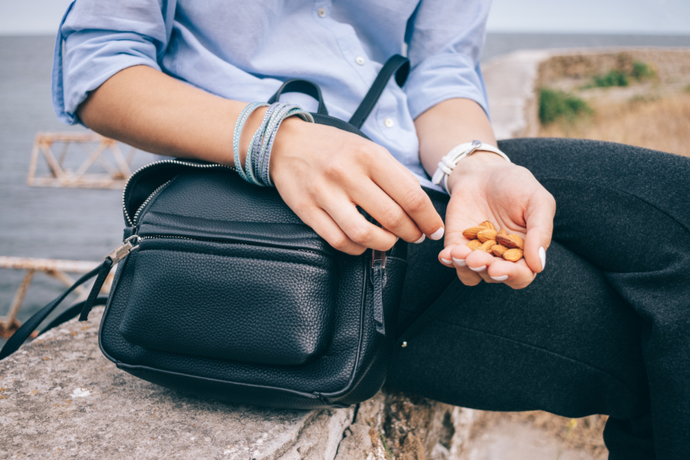If you’re following a low FODMAP diet to help you manage your irritable bowel syndrome (IBS), chances are, you’ve cut many high-fiber foods from your diet, like whole-wheat breads as well as legumes, which can aggravate your symptoms.
However, fiber is still part of a healthy diet. Depending on your age, adult women should aim to get between 21-25 grams (g) of fiber each day; men should aim for 30-38 g—even if you have IBS.
The point of a low FODMAP diet isn’t to eliminate any specific food groups from your diet altogether; rather, you should only eliminate the specific foods within each food group that are more likely to trigger your symptoms.
The good news? Certain grains, legumes, and even fruits and vegetables are still good sources of low FODMAP-friendly fiber.
Low-FODMAP Fiber Sources
Eat more of these foods to increase your fiber intake without triggering your IBS symptoms.

Grains
- ¼ cup of rice bran = 6.2 g fiber
- ¼ cup of oat bran = 3.6 g fiber
- 1 cup brown rice = 3.5 g fiber
- 1/3 cup of quinoa flakes = 2.4 g fiber
- ¼ cup oatmeal = 2.2 g fiber
- 2 oz dry quinoa pasta = 2 g fiber
- 2 oz dry brown rice pasta = 2 g fiber
- 3.5 cups of popped popcorn = 3 g fiber
- 1/4 cup of dry quinoa = 3 g fiber

Nuts & Seeds
- 1 tablespoon chia seeds = 5 g fiber
- 2 tablespoons peanut butter = 3.8 g fiber
- 10 almonds = 1.5 g fiber
- 1 tablespoon flaxseed meal = 1.9 g fiber

Fruits
- 1 medium orange = 3.1 g fiber
- 1 medium banana = 3.1 g fiber
- 1 kiwi = 2 g fiber
- 1 cup blueberries = 4 g fiber
- 10 raspberries = 1.2 g fiber
- 3/4 cup cantaloupe = 1 g fiber
- 1 cup pineapple chunks = 2.3 g fiber

Vegetables
- 1 medium potato (with skin) = 4.7 g fiber
- 1 cup corn = 3 g fiber
- 10 green beans = 2 g fiber
- 3/4 cup white cabbage = 1.2 g fiber
- ½ cup eggplant (cooked) = 1.3 g fiber
- 9 slices of carrot = 0.8 g fiber
- 1 cup chopped Swiss chard = 0.6 g fiber
- 1/2 cup sweet potato = 2.5 g fiber
- 1 cup yellow squash = 1 g fiber
Work With Your Dietitian
Meeting with your registered dietitian can help you come up with a low-FODMAP diet plan that works for you—including how much fiber you can aim to incorporate with each meal without triggering your symptoms. If necessary, your dietitian may also recommend taking a fiber supplement—one made from sterculia, methylcellulose and oat bran, which may be better tolerated in people with IBS.
